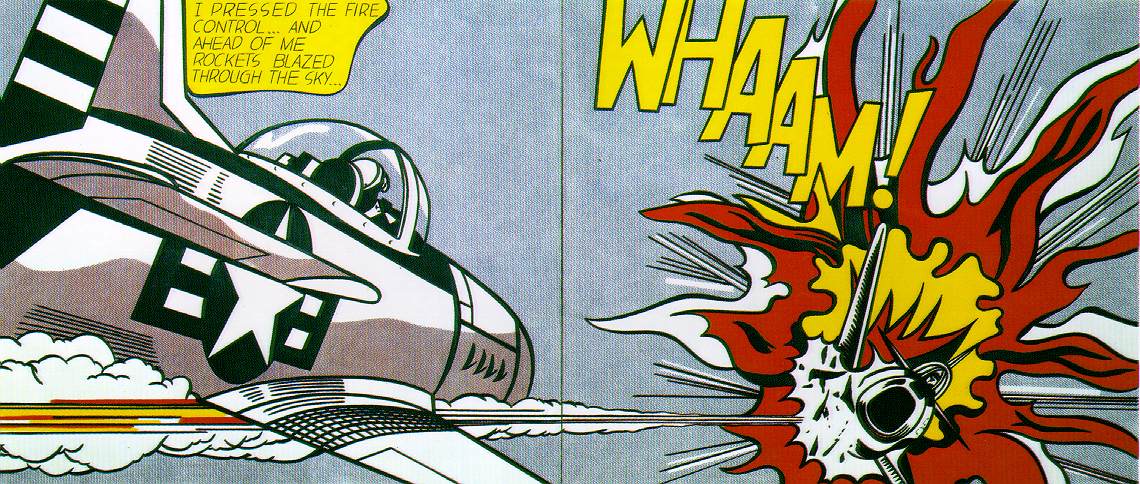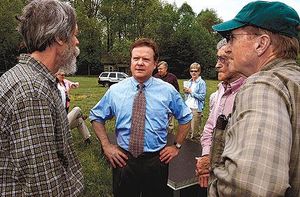fim. 16.11.2006
Meira um "íhaldssama" demokrata: Jim Webb
Vinsćlasti söngur íhaldsmanna undanfarna daga hefur veriđ sá ađ nýkjörnir fulltrúar demokrata séu flestir einhverskonar íhaldsmenn. Vinsćlasta dćmiđ um "íhaldssama" demokrata er Jim Webb, sem sigrađi George "Macaca" Allen í Virginíu. En Webb er ekki meiri "íhaldsmađur" en svo ađ hann skrifar langa grein í Wall Street Journal í gćr ţar sem hann lýsir ţungum áhyggjum af misskiptingu auđćfa og félagslegu óréttlćti í Bandaríkjunum...
Ég held ađ ef fréttaskýrendur og bandarískir íhaldsmenn vćru ekki í ađ reyna á örvćntingarfullan hátt ađ afneita ósigri repúblíkanaflokksins í seinustu viku myndi Webb vera uppnefndur kommúnisti og varhugaverđur rauđliđi! Greinin í heild sinni er bráđgóđ - en ég klippti nokkra búta úr henni:
Class Struggle
American workers have a chance to be heard.
The most important--and unfortunately the least debated--issue in politics today is our society's steady drift toward a class-based system, the likes of which we have not seen since the 19th century. America's top tier has grown infinitely richer and more removed over the past 25 years. It is not unfair to say that they are literally living in a different country. Few among them send their children to public schools; fewer still send their loved ones to fight our wars. They own most of our stocks, making the stock market an unreliable indicator of the economic health of working people. The top 1% now takes in an astounding 16% of national income, up from 8% in 1980. The tax codes protect them, just as they protect corporate America, through a vast system of loopholes. ...
This ever-widening divide is too often ignored or downplayed by its beneficiaries. A sense of entitlement has set in among elites, bordering on hubris. When I raised this issue with corporate leaders during the recent political campaign, I was met repeatedly with denials, and, from some, an overt lack of concern for those who are falling behind. A troubling arrogance is in the air among the nation's most fortunate. Some shrug off large-scale economic and social dislocations as the inevitable byproducts of the "rough road of capitalism." Others claim that it's the fault of the worker or the public education system, that the average American is simply not up to the international challenge, that our education system fails us, or that our workers have become spoiled by old notions of corporate paternalism
Still others have gone so far as to argue that these divisions are the natural results of a competitive society. Furthermore, an unspoken insinuation seems to be inundating our national debate: Certain immigrant groups have the "right genetics" and thus are natural entrants to the "overclass," while others, as well as those who come from stock that has been here for 200 years and have not made it to the top, simply don't possess the necessary attributes.
Most Americans reject such notions. But the true challenge is for everyone to understand that the current economic divisions in society are harmful to our future. It should be the first order of business for the new Congress to begin addressing these divisions, and to work to bring true fairness back to economic life. Workers already understand this, as they see stagnant wages and disappearing jobs.
The politics of the Karl Rove era were designed to distract and divide the very people who would ordinarily be rebelling against the deterioration of their way of life. Working Americans have been repeatedly seduced at the polls by emotional issues such as the predictable mantra of "God, guns, gays, abortion and the flag" while their way of life shifted ineluctably beneath their feet. But this election cycle showed an electorate that intends to hold government leaders accountable for allowing every American a fair opportunity to succeed.
With this new Congress, and heading into an important presidential election in 2008, American workers have a chance to be heard in ways that have eluded them for more than a decade. Nothing is more important for the health of our society than to grant them the validity of their concerns. And our government leaders have no greater duty than to confront the growing unfairness in this age of globalization.
Verkalýđurinn ţurfi ađ standa saman, auđćfum samfélagsins ţurfi ađ skipta upp á réttlátari máta... Hvađa "hćgrimenn" eđa "íhaldsmenn" tala um stéttabaráttu, samstöđu verkalýđsins og grćđgi stórkapítalistanna og nauđsyn réttlátari auđsskiptingar?
M
Flokkur: Stjórnmál og samfélag | Breytt s.d. kl. 18:08 | Facebook



Bćta viđ athugasemd [Innskráning]
Ekki er lengur hćgt ađ skrifa athugasemdir viđ fćrsluna, ţar sem tímamörk á athugasemdir eru liđin.